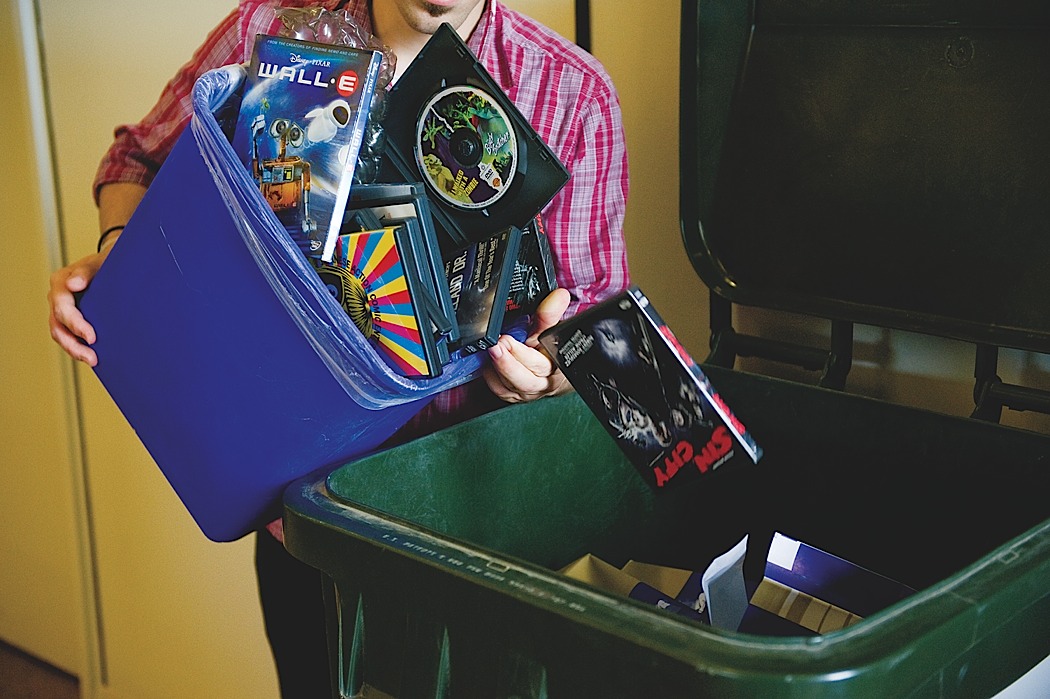Victoria Alarcon
Features Editor
On a Friday night, Parker Johnston walks through the streets of Toronto, passing by an old and distant memory: Blockbuster.

“We figured we had another year or two, but either way we knew it was inevitable,” says Johnston, a former Blockbuster employee who started working for the company in December 2010. Johnston wouldn’t find out his location would be closing down until April 2011, and it was already gone a month later.
Since Blockbuster filed for Chapter 11 bankruptcy in September 2010, the company has been slowly winding down international operations. In an effort to get rid of their $67-million debt to Hollywood movie studios, the company decided to offer their Canadian counterpart as collateral, sealing Blockbuster Canada’s fate.
“We had to pay off the debt of the American company,” says Johnston. “The reason we closed now was because of the US company.”
Though Blockbuster Canada went into receivership in May 2011 in hopes of getting a buy-out, on September 7, 2011, it was announced that the remaining 253 Blockbuster stores in Canada would close down.
To some, the news was devastating. The multi-national company that had expanded to include locations in Japan, Chile, and Australia had diminished into a dying operation. For others, the news came as no surprise: Blockbuster had died a long time ago and it was just now being publicized. But who was responsible for killing the once leading company in the movie rental business?
“Overpriced, lack of selection, poor policies. [They were] hiring the wrong people at the store level and those in-store trailer loops were awful,” says Howard Levman, owner of popular Toronto fixture Queen Video. He has been in the video rental business for 30 years. “Unless retailers give people a reason to show up they’re not going to bother. They weren’t really offering people a real alternative to Netflix and Redbox.”
With the creation of Netflix in 1997 by Reed Hastings and Marc Rudolph, Blockbuster gained a huge competitor. The company changed the way people rented movies with their DVD-by-rental service.
By the time Netflix came to Canada in 2010, the company had grown to 12.3 million members and was available on the Apple iPad, iPhone, the Nintendo Wii, and other internet connected devices. And instead of a mailing service, the company had changed to a streaming online service for Canadians so that people could watch the movie instantly.
In response to Netflix’s huge growth, Blockbuster continued to buy more video chains like Hollywood Video and kept to their brick-and-mortar business. It wasn’t until 2004 when the company would finally decide to create a DVD online rental service to compete, and later in the year drop late fees and offer a one-week grace period.
But by then its competitors had already gained a clear advantage over Blockbuster. And it wasn’t only Netflix that became a growing competitor; pirates were beginning to make their mark on the marketplace.
The popularization of broadband internet in the last decade made piracy a bigger issue than ever before.
“They didn’t understand the signals sent to them from the piracy world,” says Detliv Zwick, an associate professor of marketing at York’s Schulich School of Business. “They couldn’t make sense soon enough in a real urgency sort of way, the radical transformation of the media consumption, distribution, and storage that the internet was about to bring to their marketplace. It’s stunning that a business like that would not have figured it out.”
Blockbuster held onto their business model for a long time, refusing to make any drastic changes. What changes they did make came too late. According to Zwick, it’s not uncommon. Companies who sit at the top find it harder and harder to change their business model because the company has become so attached to it. But change is what’s needed to survive.
“It’s a complex technology marketplace,” says Zwick. “Nothing is permanent.”
The internet has had a huge impact on the world and, unfortunately, Blockbuster could not adapt to that. The formerly dominant company is now on the defensive. The American rights to the Blockbuster name have been bought by Dish Network for their subscription-based online movie rental service, much like Netflix.
“They’re in catch-up mode and they’re basically forced to erase their existing business model and come into the market against all these accomplished players,” says Zwick. “But a lot of people have already given up on Blockbuster.”


